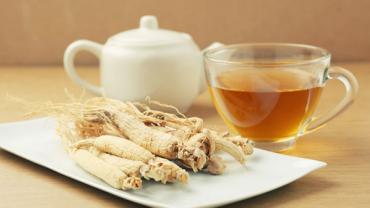
In the functional medicine world, it’s easy to talk about things that can be measured and quantified. Blood glucose and insulin levels come to mind, as do thyroid hormones and markers of cardiometabolic health, such as triglycerides, HDL and HOMA-IR. But what about something less tangible? Something patients may be reluctant to discuss with their doctors? What about libido? Sexual health is every bit as important to overall wellbeing as general physical and mental health are, but patients may be hesitant to disclose that they’re having difficulty in this area. It’s time to lift the taboo around discussing sexual function, because there are natural compounds that may help bolster a flagging libido, and perhaps even more important, declining desire and impaired performance can be signs of underlying health problems that should be addressed before they bring consequences graver than disappointment in the bedroom.
Let’s start off with a quick exploration of the underlying health concerns that may be manifesting as reduced libido or compromised sexual performance. Metabolic syndrome—essentially, chronically elevated insulin—may be a primary driver of erectile dysfunction in men. This is important for men to understand, especially young men, who may have few or even no other obvious signs of poor metabolic health. To the extent that prostate gland enlargement may interfere with sexual performance, chronic hyperinsulinemia may be a major factor here, too. (Chronically elevated insulin has such a dramatic effect on multiple hormones in both men and women that researchers have proposed the existence of a male equivalent to PCOS.)
Among women, several underlying health problems can affect sexual desire and function, and a long list of medications may also reduce libido or interfere with healthy sexual performance. Regarding nutrient shortfalls that influence sexual health, iron deficiency anemia has been shown to negatively affect sexual function and satisfaction among reproductive aged women. Zinc is well known for its role in men’s sexual health, fertility and reproductive function, but zinc deficiency as well as magnesium deficiency may also negatively impact women in this area, increasing vaginal dryness and causing loss of libido. (Magnesium deficiency also plays a role in testosterone status and anabolic processes in men, so both sexes should take care to be replete in this mineral.)
Enter Aphrodisiacs
Once any underlying issues that may affect sexual desire and performance have been addressed (including psychological ones, such as stress, anxiety, depression, etc.), if someone is still seeking something to give them some extra sexual oomph, research indicates there are, in fact, compounds with natural aphrodisiac properties. The name aphrodisiac honors Aphrodite, the ancient Greek goddess of love.
One such compound is fenugreek. In a randomized, double-blind trial involving healthy males ages 43–70, compared to placebo, extract from fenugreek seed was shown to increase total serum testosterone and free testosterone and to increase the number of morning erections and frequency of sexual activity. Improvements in sexual parameters were also seen among reproductive aged women (20–49 years) taking fenugreek seed extract. Compared to placebo, women taking fenugreek extract had significant increases in free testosterone and estradiol, and improved sexual desire and arousal.
Extracts from damiana (Turnera diffusa), a shrub native to Central and South America and the Caribbean, have aromatase inhibiting effects and modulate nitric oxide, which may help boost erectile function. Tribulus (Tribulus terrestris) is another plant whose extracts have been used to favorably influence male and female sexual performance. It was long believed that the beneficial effects were due to an increase in testosterone but more recent research points to a role for nitric oxide and improvements in endothelial function.
Another natural compound that may be beneficial for sexual health in men and women is ginseng. Ginseng (American and Asian varieties) is an adaptogen believed to increase vitality and physical performance (including sexual) by influencing the hypothalamic-pituitary-adrenal axis to boost energy levels and promote stamina. Menopausal and postmenopausal women are populations that may have more difficulty with sexual function compared to men and younger women. Among a cohort of menopausal women, four weeks of supplementation with Panax ginseng resulted in significant improvements in sexual function, menopausal symptoms and quality of life compared to placebo.
The above are only a select few of the compounds whose beneficial influence on sexual performance are backed by research. Others include horny goat weed, ginkgo biloba and yohimbine. Of course, there are also foods that have been touted throughout the ages for their aphrodisiac properties. Oysters fall into this category, owing to their high zinc content. Other zinc-rich foods include red meat and shellfish, such as crab. If impaired endothelial function and suboptimal blood flow interfere with sexual arousal and performance, foods that may favorably influence these may be beneficial, such as those rich in flavonoids (citrus fruits, berries, vegetables, tea, red wine) or nitrates (spinach, lettuce, beets, cabbage).
While the nutrients and compounds discussed here can be considered “natural,” patients looking to strengthen their libido and support sexual performance should consult their qualified medical providers before experimenting with these, as some of them may interact negatively with prescription medications.